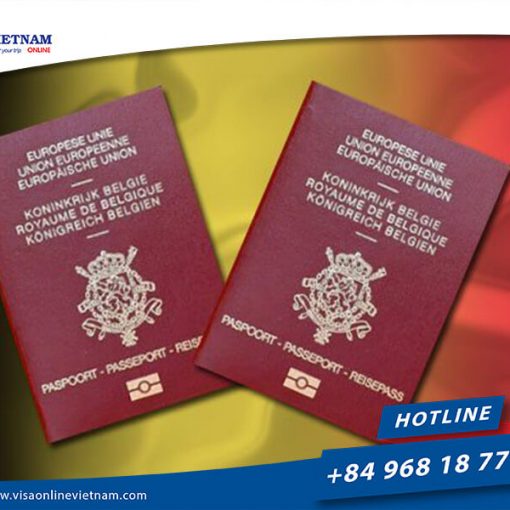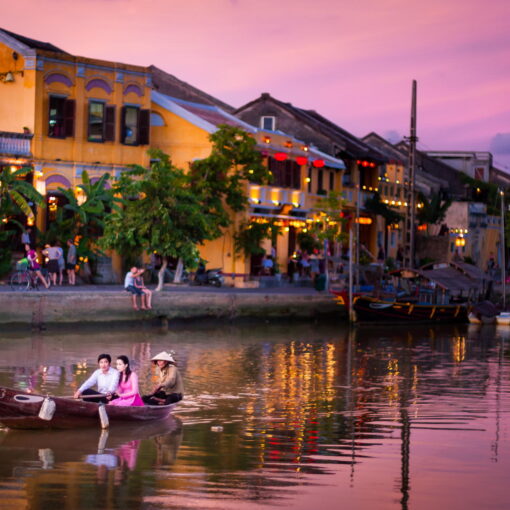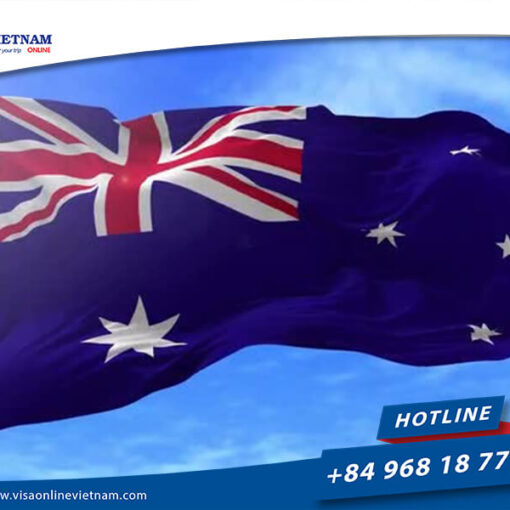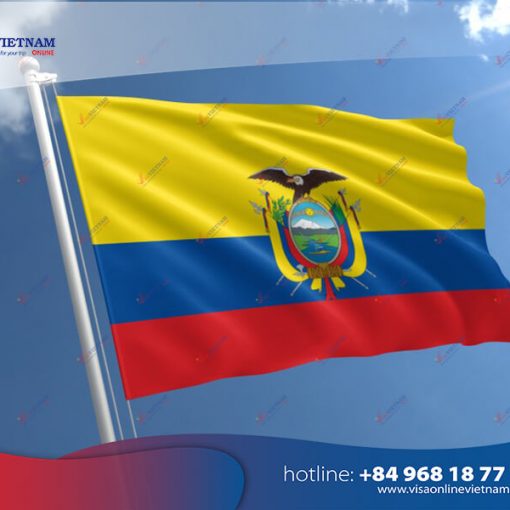Vietnam, a Southeast Asian gem renowned for its captivating landscapes, vibrant culture, and bustling cities. Whether you’re seeking adventure in the majestic mountains, relaxation on pristine beaches, or cultural immersion in ancient temples, Vietnam has something to offer everyone. Navigating the visa process can be daunting for first-time visitors, but this comprehensive guide aims to demystify the Vietnam visa requirements and procedures, providing you with everything you need to plan a smooth and hassle-free trip.
Introduction Vietnam Visa
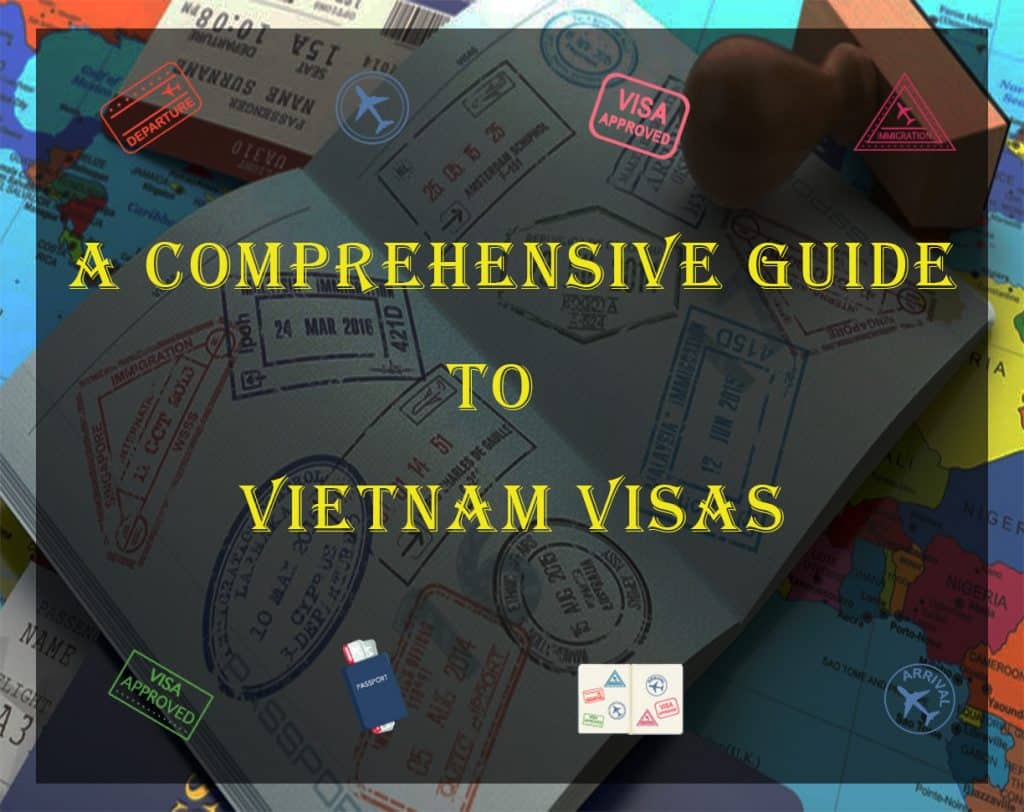
Vietnam has a strict visa policy, requiring most foreign nationals to obtain a visa before entering the country. The specific visa requirements vary depending on your nationality, purpose of travel, and intended duration of stay. It’s crucial to familiarize yourself with these requirements well in advance to avoid any complications at the border.
Understanding the Visa Requirements for Vietnam
Vietnam’s visa policy is designed to regulate the entry and stay of foreign nationals in the country. The requirements are based on several factors, including:
- Your country of citizenship
- The purpose of your visit (tourism, business, employment, etc.)
- The duration of your intended stay
- Your travel history and any previous visa violations or overstays
It’s essential to research the specific requirements applicable to your situation before planning your trip to Vietnam. This will help ensure you have the necessary documentation and meet the eligibility criteria for the appropriate visa type.
Types of Visas for Vietnam
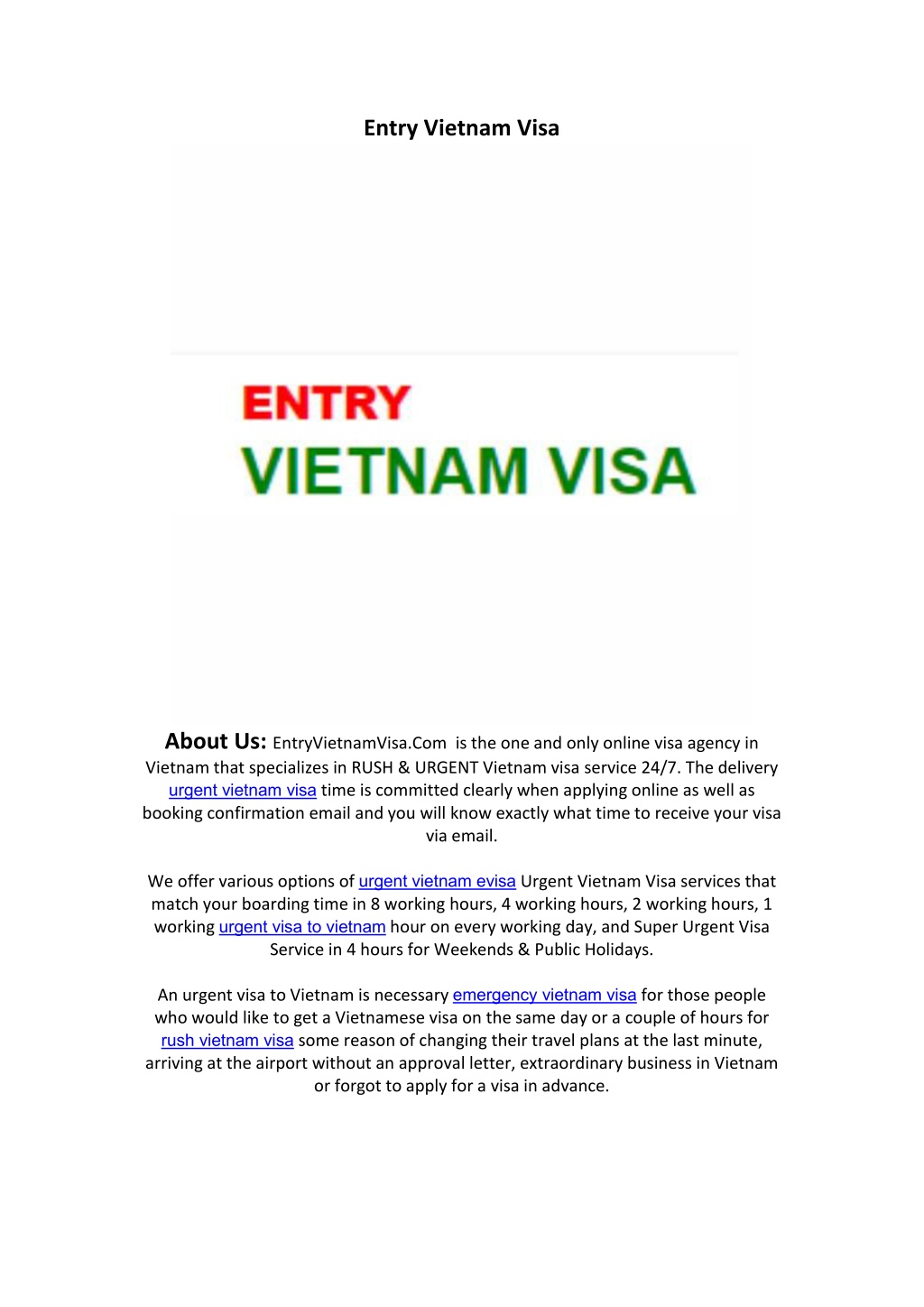
Vietnam offers various visa types to cater to different travel needs. The most common ones include:
Tourist Visa
As the name suggests, the tourist visa is designed for individuals visiting Vietnam for leisure or sightseeing purposes. It is typically granted for a stay of 15-30 days, although it can be extended in certain cases.
The tourist visa is a single-entry or multiple-entry visa, depending on your travel plans and the duration of your stay. Single-entry visas allow you to enter Vietnam once, while multiple-entry visas allow you to enter and exit the country multiple times during the validity period.
To apply for a tourist visa, you’ll need to provide:
- A completed visa application form
- A passport-sized photograph
- A valid passport with at least six months of remaining validity
- Proof of travel arrangements (e.g., flight itinerary, hotel bookings)
- Visa fee payment
Business Visa
If you’re traveling to Vietnam for business purposes, such as attending meetings, conferences, or engaging in trade activities, you’ll need to apply for a business visa. Business visas are typically issued for a shorter duration than tourist visas, ranging from a few days to a few months, depending on the nature and duration of your business activities.
To apply for a business visa, you’ll need to provide:
- A completed visa application form
- A passport-sized photograph
- A valid passport with at least six months of remaining validity
- An official invitation letter from a Vietnamese company or organization
- Proof of business activities or purpose of visit
- Visa fee payment
Work Visa
If you plan to work or seek employment in Vietnam, you’ll need to apply for a work visa. Work visas are typically valid for one year and can be extended or renewed based on your employment contract and the sponsorship of your Vietnamese employer.
To obtain a work visa, you’ll need to provide:
- A completed visa application form
- A passport-sized photograph
- A valid passport with at least six months of remaining validity
- A work permit or approval letter from the Vietnamese authorities
- An employment contract or job offer from a Vietnamese employer
- Visa fee payment
Other visa types include student visas for those pursuing education in Vietnam, and diplomatic or official visas for individuals traveling on official government business.
How to Apply for a Visa for Vietnam
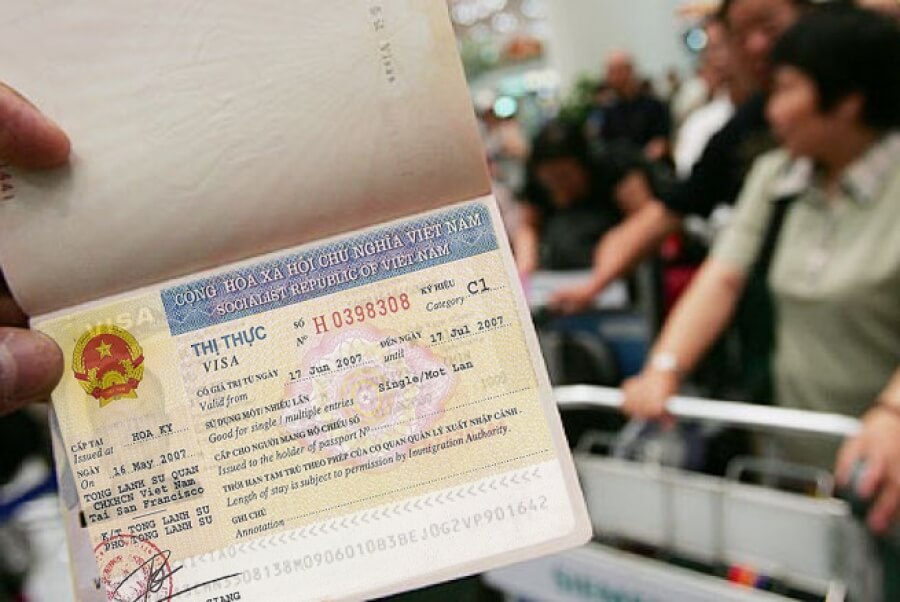
There are several ways to apply for a visa for Vietnam, depending on your location and preferences.
Applying Online
One of the most convenient options is to apply for a Vietnam visa online through authorized visa agencies or the Vietnamese Immigration Department’s website. The online application process typically involves:
- Completing an online visa application form
- Uploading required documents (passport photo, travel itinerary, etc.)
- Making the visa fee payment online
- Receiving an approval letter or visa upon arrival (for certain visa types)
Many travelers prefer the online application process for its convenience and efficiency, as it eliminates the need for in-person visits to embassies or consulates.
Applying through the Vietnamese Embassy
Alternatively, you can apply for a visa by visiting the nearest Vietnamese embassy or consulate in your country of residence. This option is particularly suitable for those who require additional assistance or have specific visa requirements.
The process typically involves:
- Obtaining and completing the visa application form
- Gathering the required documents
- Submitting the application in person or by mail
- Paying the visa fee
- Collecting your visa once processed
It’s essential to check the specific requirements and procedures with the Vietnamese embassy or consulate in your location, as they may vary slightly.
Applying on Arrival
In some cases, certain nationalities may be eligible to apply for a visa on arrival at Vietnam’s international airports or land borders. This option is particularly convenient for travelers who need a tourist visa for a short stay.
To apply for a visa on arrival, you’ll need to:
- Obtain a visa approval letter from a reputable travel agency or the Vietnamese Immigration Department before your trip
- Present the approval letter, completed visa application form, passport photo, and visa fee payment upon arrival in Vietnam
- Your visa will be issued at the immigration counter
It’s important to note that the visa on arrival option is only available for specific nationalities and may have additional requirements or restrictions.
Visa Fees and Processing Time
Fee Structure for Different Types of Visas
The visa fees for Vietnam vary depending on the type of visa, your nationality, and the processing time requested. Here’s an overview of the typical fee structure:
- Tourist Visa:
- Single-entry visa: $25 – $50 (USD)
- Multiple-entry visa: $50 – $100 (USD)
- Business Visa:
- Single-entry visa: $50 – $100 (USD)
- Multiple-entry visa: $100 – $200 (USD)
- Work Visa: $100 – $300 (USD)
- Student Visa: $50 – $150 (USD)
- Diplomatic or Official Visa: Fees may vary or be waived
It’s important to note that these fees are subject to change, and additional charges may apply depending on the processing time requested or the specific embassy or consulate processing your application.
Processing Time for Visa Approval
The processing time for a Vietnam visa application can vary based on several factors, including the type of visa, the method of application (online, embassy, or on arrival), and the current workload of the processing authorities.
Generally, here are the approximate processing times:
- Online Applications: 3-7 business days
- Embassy or Consulate Applications: 5-10 business days
- Visa on Arrival: Immediate (upon arrival in Vietnam)
For expedited processing, additional fees may apply. It’s advisable to apply for your visa well in advance to accommodate any potential delays and ensure a smooth entry into Vietnam.
Required Documents for Visa Application
Commonly Requested Documents
Regardless of the visa type or application method, there are certain common documents that are typically required for a Vietnam visa application:
- Completed visa application form
- Valid passport with at least six months of remaining validity
- Passport-sized photographs (following specific requirements)
- Travel itinerary or flight bookings
- Proof of accommodation (e.g., hotel reservations)
- Proof of sufficient financial means (e.g., bank statements, income tax returns)
Additional Requirements for Specific Visa Types
Depending on the type of visa you’re applying for, additional documents may be required:
- For Business Visas:
- Invitation letter from a Vietnamese company or organization
- Business registration documents or company profile
- For Work Visas:
- Work permit or approval letter from Vietnamese authorities
- Employment contract or job offer letter from a Vietnamese employer
- Curriculum Vitae (CV) or resume
- For Student Visas:
- Admission letter from a Vietnamese educational institution
- Proof of tuition fee payment or financial support
It’s essential to carefully review the specific requirements for your visa type and ensure that you have all the necessary documents ready before submitting your application.
Eligibility Criteria for a Visa for Vietnam
Age Restrictions
Vietnam generally does not have strict age restrictions for obtaining a visa. However, certain visa types may have age-related requirements or considerations:
- For tourist visas, children under a certain age (typically 14 years old) may be exempt from visa fees or have reduced fees.
- For work visas, there may be age limits or requirements related to retirement age, depending on the employer’s policies and Vietnamese labor laws.
Financial Requirements
To obtain a visa for Vietnam, you may need to demonstrate your financial stability and ability to support yourself during your stay in the country. While specific financial requirements can vary based on the visa type, common expectations include:
- Having sufficient funds to cover your travel expenses, accommodation, and daily living costs.
- Providing proof of financial means, such as bank statements, income tax returns, or sponsorship letters.
- Demonstrating that you can support any dependents accompanying you during your stay in Vietnam.
It’s essential to ensure that you meet the financial criteria set by the Vietnamese authorities for your chosen visa category to avoid any delays or complications in the application process.
Health Insurance Coverage
Health insurance coverage is not typically a mandatory requirement for obtaining a visa for Vietnam. However, it is highly recommended to have adequate health insurance that covers medical expenses, emergencies, and repatriation during your stay in the country.
Having health insurance can provide you with peace of mind and financial protection in case of unexpected illness, accidents, or medical emergencies while in Vietnam. It’s advisable to carry a copy of your health insurance policy and contact information with you at all times during your travels.
Visa Extension and Renewal
Extending Your Stay in Vietnam
If you wish to prolong your stay in Vietnam beyond the validity period of your current visa, you have the option to apply for a visa extension. The process for extending your visa typically involves:
- Submitting an application for visa extension to the Vietnamese Immigration Department before your current visa expires.
- Providing valid reasons for needing an extension, such as ongoing medical treatment, family visits, or business purposes.
- Paying the applicable visa extension fee and complying with any additional requirements specified by the authorities.
It’s important to apply for a visa extension well in advance of your visa expiry date to avoid any overstay penalties or immigration issues.
Renewing an Expired Visa
If your visa has already expired, you may still have the opportunity to renew it within a certain grace period without facing severe consequences. The process for renewing an expired visa typically involves:
- Contacting the nearest Vietnamese Immigration Department office or authority to explain your situation and request a visa renewal.
- Providing valid reasons for the delay in renewing your visa and demonstrating your intention to comply with immigration regulations.
- Paying any applicable fines or penalties for the visa overstay and following the instructions provided by the immigration authorities.
It’s crucial to act promptly and transparently when renewing an expired visa to rectify the situation and avoid potential legal repercussions.
Visa Overstay in Vietnam
Consequences of Overstaying
Overstaying your visa in Vietnam is a serious violation of immigration laws and can result in various consequences, including:
- Fines: You may be required to pay daily fines for each day of overstay, which can accumulate quickly.
- Deportation: Immigration authorities have the right to detain and deport individuals who exceed their authorized stay period.
- Entry Bans: Overstaying your visa could lead to being blacklisted or banned from re-entering Vietnam in the future.
It’s essential to adhere to the terms and conditions of your visa and seek timely extensions or renewals if needed to avoid overstaying and its associated penalties.
Penalties for Overstaying
The penalties for overstaying a visa in Vietnam can vary depending on the duration of the overstay and the circumstances involved. Common penalties for visa overstay may include:
- Daily fines: Typically ranging from $10 to $50 per day of overstay.
- Detention: In some cases, individuals may be detained by immigration authorities until their overstay fines are settled.
- Deportation: Serious or repeated violations of visa regulations may result in deportation and entry bans.
It’s crucial to be aware of the implications of overstaying your visa in Vietnam and take proactive measures to resolve any visa-related issues promptly.
Visa-Free Travel to Vietnam
Countries Eligible for Visa Exemption
Vietnam offers visa exemption or visa-free entry to citizens of several countries for short stays, typically ranging from 14 to 90 days. Some of the countries eligible for visa exemption in Vietnam include:
- ASEAN member states
- South Korea
- Japan
- Russia
- Nordic countries (Denmark, Finland, Norway, Sweden)
It’s important to check the latest visa exemption policies and requirements with the Vietnamese authorities or embassy before planning your trip to ensure eligibility for visa-free entry.
Conditions for Visa-Free Entry
While citizens of eligible countries may enjoy visa-free entry to Vietnam under certain conditions, it’s essential to note the following key points:
- The duration of stay allowed under visa exemption may vary based on nationality and purpose of visit.
- Visa-free entry is typically granted for tourism, business, or transit purposes only.
- Visitors must comply with immigration regulations, including departure before the authorized stay period expires.
If you plan to travel to Vietnam under visa exemption, make sure to have a valid passport, return ticket, and proof of sufficient funds for your stay as per the immigration requirements.
Notes
Important Points to Remember about Visa Applications
When applying for a visa for Vietnam, keep the following essential points in mind:
- Check the specific visa requirements, fees, and processing times for your nationality and visa type.
- Ensure all documents are complete, accurate, and up-to-date before submitting your application.
- Plan ahead and apply for your visa well in advance to allow for any unforeseen delays or processing times.
Tips for a Smooth Visa Application Process
To streamline your visa application process and increase the chances of approval, consider the following tips:
- Double-check all information provided in your application form for accuracy and consistency.
- Seek assistance from reputable visa agencies or legal advisors for complex visa types or applications.
- Keep copies of all submitted documents and correspondence for your records and reference.
Mistakes to Avoid
Common Errors that Lead to Visa Rejection
Avoid these common mistakes that could result in your visa application being rejected:
- Providing incomplete or inaccurate information in your visa application form.
- Failing to meet the specific requirements or documentation criteria for your chosen visa type.
- Waiting until the last minute to apply, leading to rushed submissions and potential oversights.
How to Avoid Delays in Visa Processing
To prevent unnecessary delays in your visa processing, take the following precautions:
- Submit your visa application well in advance of your planned travel dates.
- Double-check all documents and information for completeness and correctness.
- Respond promptly to any requests for additional information or clarifications from the immigration authorities.
Frequently Asked Questions
What is the validity period of a tourist visa for Vietnam?
The validity of a tourist visa for Vietnam can vary depending on the type of visa issued. Typically, tourist visas are valid for single or multiple entries within a specific period, ranging from 30 days to 12 months. It’s essential to check the visa validity and entry requirements before traveling to Vietnam.
Can I apply for a visa on arrival if I am traveling for business purposes?
Yes, travelers visiting Vietnam for business purposes may be eligible to apply for a visa on arrival. However, it’s crucial to obtain a visa approval letter from a reputable agency or sponsor in advance and present the necessary documents upon arrival, including the completed visa application form, passport photo, and visa fee payment.
Is it possible to convert a tourist visa to a work visa while in Vietnam?
Converting a tourist visa to a work visa while in Vietnam is generally not permitted. If you intend to work in Vietnam, you must apply for a work visa through the appropriate channels, including obtaining a work permit and meeting the specific requirements for employment in the country. It’s advisable to consult with immigration authorities or legal experts for guidance on the proper visa procedures.
Conclusion
Navigating the visa requirements for Vietnam can seem daunting, but with the right information and preparation, you can successfully obtain the necessary visa for your travels. Whether you’re planning a leisurely vacation, a business trip, or an extended stay in Vietnam, understanding the visa types, application processes, and eligibility criteria is essential for a smooth and hassle-free experience. By following the guidelines outlined in this comprehensive guide, you can confidently apply for your Vietnam visa, avoid common pitfalls, and enjoy your time exploring this vibrant and culturally rich destination. Remember to plan ahead, gather all required documents, and adhere to immigration regulations to make the most of your visit to Vietnam. Safe travels!

